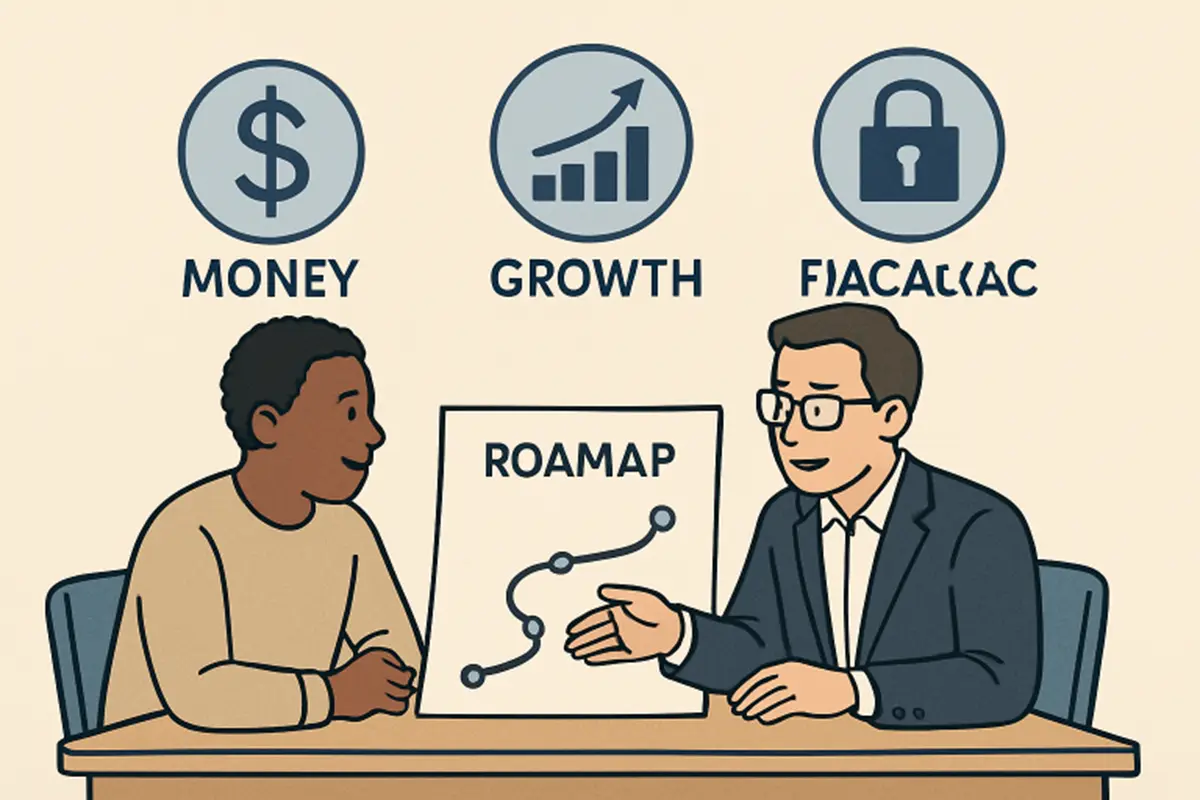What Is a Certified Financial Planner (CFP)?
A Certified Financial Planner (CFP) is a credentialed professional specializing in comprehensive financial planning for individuals and families. CFPs are held to rigorous education, experience, and ethical standards, making them uniquely qualified to guide clients toward their financial goals. To earn the designation, candidates must complete a specific curriculum, pass a challenging exam, garner work experience, and commit to the CFP Board’s code of ethics.
Unlike some financial advisors who may focus on investments or insurance alone, CFPs offer holistic planning that integrates tax, retirement, estate, and risk management strategies. For those considering working with a trusted expert like Aaron Werner Financial Advisor, the assurance of working with a CFP means partnering with someone dedicated to your lifelong financial well-being.
The Value of Professional Financial Planning
Building wealth is more complex than accumulating savings or picking winning stocks. It requires a strategic approach that factors your entire financial picture and responds to opportunities and risks as they arise. Professional guidance ensures efficiency, discipline, and accountability throughout the journey.
Clients working with a CFP typically experience higher financial well-being scores. According to a study by the CFP Board, individuals with a formal financial plan are more likely to reach their goals and report greater confidence in their financial future. The benefits extend beyond investment returns—CFPs help clients avoid costly mistakes, stay the course during market volatility, and capitalize on tax-saving strategies.
Creating a Personalized Wealth Roadmap
CFPs begin by thoroughly assessing your financial situation, risk tolerance, and ambitions. They ask about everything from debt levels and family dynamics to career milestones and long-term aspirations. This personalized approach ensures the roadmap fits your unique circumstances rather than relying on generic advice.
For example, a young professional may focus on student loan repayment and building an emergency fund. At the same time, a mid-career client could prioritize education savings for children or maximize retirement contributions. Retirees may benefit from income distribution strategies and estate planning. Case studies consistently show the power of tailored plans—from accelerating debt reduction to optimizing retirement withdrawals—that keep clients on track for major life transitions.
Investment Management and Risk Reduction
Smart diversification is a hallmark of CFP-guided portfolios. By distributing assets across a blend of stocks, bonds, real estate, and alternative investments, CFPs help clients pursue growth while managing risk. They adjust portfolios per evolving market conditions and personal goals using sophisticated tools, research, and ongoing monitoring.
Risk mitigation is also central. CFPs educate clients about volatility, inflation, and behavioral tendencies that can undermine results. For insight into how financial advisors foster smarter money decisions, see this helpful article from Investopedia.
Tax-Efficient Planning and Wealth Preservation
Retaining more of what you earn is as crucial as generating wealth in the first place. CFPs design strategies to help clients minimize taxes through retirement account optimization, tax-loss harvesting, timing of capital gains, and strategic charitable giving. Proactive year-end planning and regular reviews allow quick pivots as tax laws or client circumstances change.
Estate planning is another pillar of long-term wealth preservation. CFPs often collaborate with attorneys to ensure your legacy goals are met efficiently, keeping assets out of probate and reducing tax burdens for heirs. Learn more about estate planning basics at NerdWallet’s Estate Planning Guide.
Behavioral Coaching: Keeping Clients on Track
Emotions and impulsivity can be the most significant obstacles to wealth accumulation. CFPs act as behavioral coaches, fostering financial discipline and consistency through regular check-ins and accountability. They advise clients to tune out market noise, avoid emotional decision-making, and stick to their strategies even in turbulent times.
According to a CFP Board report, effective financial planning improves financial outcomes, patience, and peace of mind. For more on the power of comprehensive planning, visit the official CFP Board resource, The Power of Financial Planning in Reaching Goals.
Adapting Strategies for Life Changes
Major life changes—including career moves, childbirth, divorce, or inheritances—require swift financial adaptation. A CFP is your ongoing partner, guiding you with flexible strategies tailored for every new chapter. During economic downturns or market shocks, their experience in scenario planning becomes invaluable, providing stability and clear-headed responses when uncertainty strikes.
Revisiting your financial plan with a CFP during times of change ensures you stay aligned with your most important priorities while protecting against unnecessary setbacks.
Questions to Ask When Choosing a CFP
Choosing the right advisor is essential for building trust. Start by verifying a CFP’s credentials, experience, and areas of specialization. Ask about their investment philosophy, fee structure, and how they handle conflicts of interest. During your first meetings, discuss your goals and listen closely to their approach: do they provide clear, transparent answers?
Assessing communication style and compatibility is equally important. A productive long-term relationship requires openness, mutual respect, and a shared commitment to your goals. For tips on finding the right advisor, check out the Consumer Finance Protection Bureau’s tips for hiring a financial advisor.
The Long-Term Benefits of Collaborative Wealth Planning
Comprehensive planning with a CFP provides more than immediate solutions—it builds a foundation for generational success. As your life evolves, the advisor-client relationship grows deeper, continually optimizing your strategies and keeping you motivated.
Studies show that clients who engage in long-term financial planning achieve higher savings rates, greater net worth, and more resilient mindsets through all phases of life. A partnership with a skilled CFP is an investment in your financial future, with benefits that will endure for years.
Also Read-Technical vs. Content Focus: Finding the Right SEO Specialist for Your Needs








